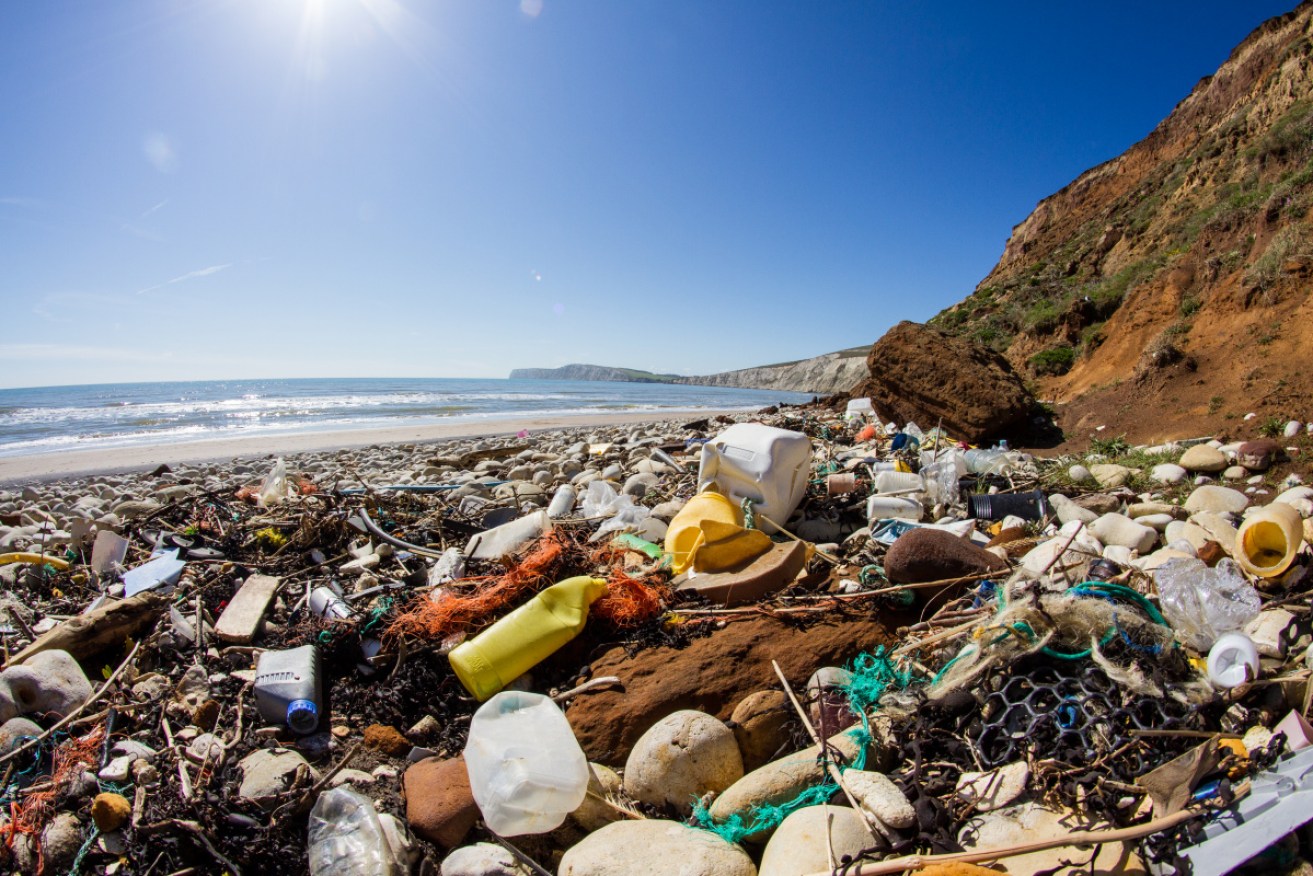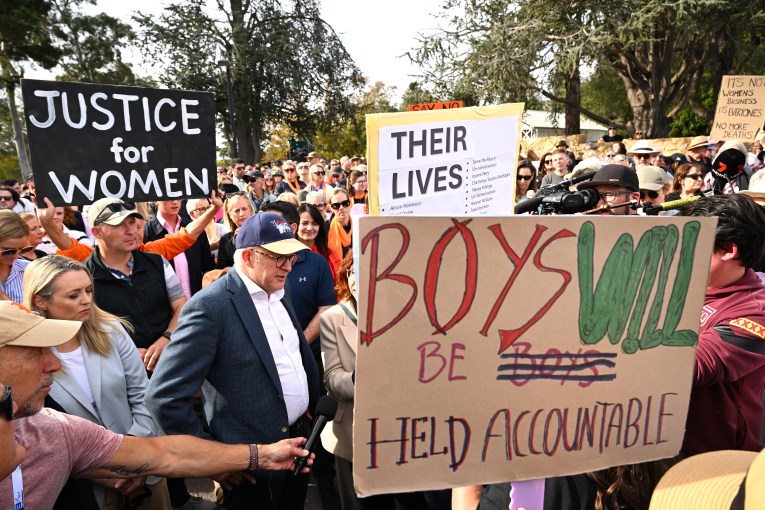Major changes to supermarket experience as retail giants try to stop waste


Australians should brace themselves for major changes to the way they shop, if they want to live plastic free. Photo: Getty
A new report has named Australia as the worst country for producing single-use plastic waste – and conservationists say nothing will change without serious action.
It’s despite a pact signed this week between major supermarkets and multinational companies, which would see the elimination of plastic waste from supply chains in Australia by 2025.
The agreement comes as a landmark review revealed just 20 companies are responsible for producing more than half of the single-use plastics in the world.
For Australia to reduce its reliance on single-use plastics and meet the targets set by the group, consumers need to brace themselves for a very different shopping experience, analysts say.
Reduce, reuse, recycle – seriously
Jeff Angel is the director of the Boomerang Alliance, a group of 53 organisations that are working to reduce plastic pollution.
Mr Angel said the pact was doomed to fail, because there was nothing and no-one to hold those signed-up companies accountable.
The pact consists of four ambitious targets:
- Eliminate unnecessary plastic packaging
- Make packaging 100 per cent recyclable or compostable
- Increase the amount of packaging currently recycled by 25 per cent
- All packaging to be made from an average of 25 per cent recycled plastic.
Signatories include major supermarkets Coles, Woolworths and Aldi, alongside environmental groups and the CSIRO.
Businesses like Coca-Cola, Nestle, Pepsico and Arnott’s Biscuits are also on board.
It marks the first time industry giants, representing all stages of the supply chain, have come together.
But Mr Angel isn’t convinced. He said every other pact before this one had ultimately failed because there was no compliance.
The numbers certainly paint a grim picture. Only 13 per cent of plastic packaging is being actually recycled currently and research shows microplastics are now everywhere – in the air, soil, rivers, even in our beer.
If we don’t make serious changes, by 2040 the amount of plastic on the market will have doubled and the amount entering the ocean will have almost tripled.
Changes to the way we shop
Imagining living with unnecessary and problematic plastics is hard, but we have to get there, Ms Noble said.
“It would look like some things disappearing, straws for example or lightweight plastic bags – a lot of the time they’re not needed,” Ms Noble said.
But some changes will barely be noticeable.
“A shampoo bottle will be made of 100 per cent recycled material, where before it was made of virgin plastic. That’s one of the biggest changes that will make the most difference,” Ms Noble said.
After a huge wave of public pressure, supermarkets have started changing the way they use plastics to package their products.
ALDI has already phased out unnecessary single-use plastics – such as single-use plastic tableware – while Coles has committed to doing the same by July 1.
Coles is trialling a new BYO deli system with re-usable containers in some of its Melbourne stores.
And Woolworths was the first major retailer to phase out plastic bags.
Coles did not respond to questions from The New Daily about their involvement in the pact and how they plan to meet its targets.
Brooke Donnelly, CEO of Australian Packaging Covenant Organisation, which lead the pact, said it was “about taking action, not policy or legislation”.
Ms Donnelly said because the pact was for the Oceanic region, including the developing Pacific Islands, it wasn’t feasible to make it mandatory.
But she maintained the Australian industry and government was committed to achieving the targets.
Twenty companies create half the single-use plastic
Meanwhile, a new report has revealed 20 companies are the source of more than half of all the single-use plastic items made globally.
The report, published Tuesday by Australia’s Minderoo Foundation, noted energy giant Exxon Mobil was at the top of its “Plastic Waste Makers Index”, followed by the Dow Chemical Co. and China’s Sinopec.
Together, the three companies account for 16 per cent of all waste from single-use plastics such as bottles, bags and food packaging.
The report also assessed which countries generate the most single-use plastic waste, per head of population.
Australia came out on top.
Former US vice president Al Gore said the trajectories of the climate crisis and the plastic waste crisis were strikingly similar, in a statement that accompanied the report.
“Since most plastic is made from oil and gas — especially fracked gas — the production and consumption of plastic are becoming a significant driver of the climate crisis,” Mr Gore said.








